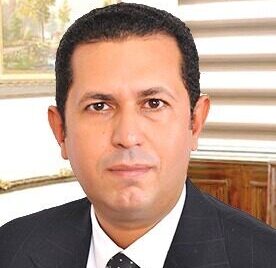The death of Iranian president Ebrahim Raisi and his foreign minister Hossein Amir-Abdollahian in a helicopter crash is undoubtedly tragic for Iran. It raises many questions about its future consequences for Tehran.
This cannot be viewed as a passing incident, but rather an event that could significantly affect Iran’s future and its international relations.
It will likely increase international pressure on Iran, whether in terms of diplomatic relations or economic sanctions.
This may require the Iranian government to act with caution and adopt policies that calm tensions down and strengthen international confidence in Tehran.
The helicopter crash may lead to a loss of public confidence in the Iranian government, especially if there is a cover-up or concealment of facts, which may escalate tensions within Tehran and cause criticism of its political system to grow.
At the economic level, political and security crises may affect Iran’s economic stability, raise uncertainty among investors and lead to a decline in foreign investments and economic growth.
This incident may also cause deterioration in relations between Iran and other countries.
This tension can complicate diplomatic efforts and increase the gap between Tehran and its international partners.
The Times of Israel quoted Michael Makovsky, CEO of the Jewish Foreign Policy Institute, as saying that post-Raisi Iran will be more self-absorbed and immersed in domestic politics, which may affect its foreign relations.
Raisi was a potential successor of the Iranian Supreme Leader. Abdollahian was also a potential successor Raisi.
Although Iran’s broad foreign policy will not change, having to deal with unexpected political turmoil is expected to distract it from the multi-front battle it wages against Israel, according to the Israeli newspaper.
Speculation is rife about the real cause of the accident. Was it a technical fault that caused the helicopter to crash or this crash was the result of a terrorist act? Was there a conspiracy to remove the Iranian president from power?
It is important to understand that politics in Iran is not primarily linked to individual personalities, but is influenced by many social, economic, cultural and religious factors as well.
Maintaining political and economic stability is a fundamental pillar of any political system, and this applies in particular to Iran which faces multiple internal and external challenges.
In the face of these circumstances, it is necessary for the Iranian government to take effective measures to allay the people’s fears and restore confidence in the government and the economy.
These actions could include enhancing transparency, improving communication with the public, and taking action to investigate the incident.
The international community must also support Iran in this difficult time by showing respect to this country’s political and economic peculiarities.
Mohamed Fahmy is the editor-in-chief of The Egyptian Gazette and Egyptian Mail newspapers






Discussion about this post